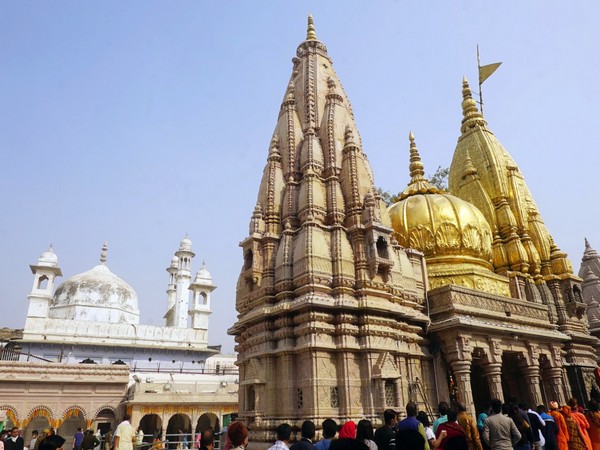A team of the Archaeological Survey of India (ASI) arrived at the Gyanvapi mosque complex here on Saturday morning to continue the court-ordered scientific survey of the complex, adjacent to Kashi Vishwanath Temple, excluding Wuzu Khana.
The survey began at around 09.00 am today amid tight security.
The scientific survey of the complex began on Friday amid tight security, following Allahabad High Court’s order, which allowed the ASI to conduct the survey, to determine if the mosque was built on a pre-existing temple.
Sudhir Tripathi, a lawyer from the Hindu side, said that the scientific survey will clear everything.
“It is the second day of the survey. We want people to cooperate in the survey and get it completed as soon as possible. We are showing full cooperation and involvement. They have come at the direction of the Supreme Court. We welcome it. We want the matter to be resolved soon. The survey will clarify everything,” the lawyer said.
Allahabad High Court on Thursday dismissed the plea filed by the Muslim party, Anjuman Intezamia Masjid Committee, challenging the Varanasi court order allowing the ASI to conduct a scientific survey of the Gyanvapi mosque premises, except the ‘Wazukhana’ area where a “Shivling” was claimed to have been found last year.
The Anjuman Intezamia Masjid Committee had challenged the Varanasi District Judge’s July 21 order.
On July 21, Varanasi district judge AK Vishvesha ordered the ASI survey of the Gyanvapi complex on an application moved by four Hindu women on May 16, 2023.
The order of the district judge, however, excluded the Wuzu Khana (ablution pond area) of the complex, which has been sealed on the order of the Supreme Court.
Earlier on Friday, the top court declined to stay the scientific survey by ASI.
A bench headed by Chief Justice of India DY Chandrachud said that ASI has clarified that the entire survey would be completed without any excavation and without causing any damage to the structure.
The entire process of scientific survey shall be concluded with non-invasive methodology, the bench ordered.
“We reiterate the direction of the High Court that there shall be no excavation,” said the Supreme Court.
The bench noted that Chief Justice of Allahabad High Court took note of the affidavit of ASI that it is not carrying out any excavation during its survey and no part of wall etc. will be touched.
The Anjuman Intezamia Masjid Committee has challenged the Allahabad High Court order allowing ASI to conduct scientific survey by ASI of the Gyanvapi mosque premises.
During the hearing, senior advocate Huzefa Ahmad appearing for mosque committee objected to the survey saying if someone now comes and files a frivolous plea saying that there is a monument below this structure, will the court order ASI survey?
To this CJI DY Chandrachud replied, “What is frivolous to you is faith to other side.”
Solicitor General Tushar Mehta for Uttar Pradesh said ASI affidavit before the High Court says no drilling, cutting of stone will be done from the existing structure, no wall or structure will be damaged and it will be done by the non-destructive method.
Huzefa said when you conduct survey, it is like uncovering wounds of the past and that is what Places of Worship Act sought to injunct. “You are unravelling wounds of past here,” he said.
Justice Pardiwala told Huzefa that despite assuring that there will be no harm to the structure, you are opposed to the survey.
“This survey will be in form of a report. Tomorrow, if you succeed on maintainability, it will just be a piece of paper. Let the survey be undertaken by the ASI,” Justice Pardiwala said. (ANI)
Read More: http://13.232.95.176/



